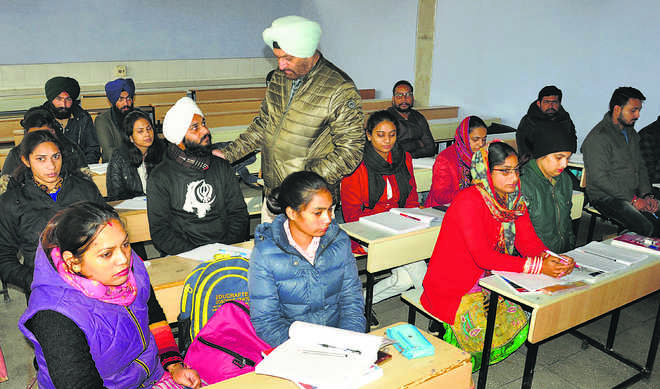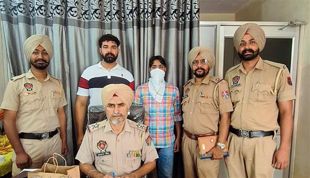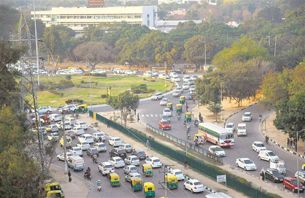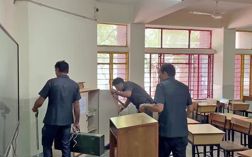
Crucial: A dignified communion with the youth must be enabled.
Avijit Pathak
Professor of Sociology, JNU
They are Kashmiri students — young, dreamy and driven by educational quest and vocational pursuits. But then, it is because of our collective decadence that we stereotype them. And, with the mob mentality and mass psychology of revenge after the Pulwama tragedy, our ‘nationalist’ gaze classifies them as ‘conspirators’ or ‘potential terrorists’. As they are targeted and attacked, and the story repeats itself from Dehradun to Delhi, I realise the importance of being a teacher. I must raise my dissenting voice, a voice emanating from the therapeutic power of a dialogic relationship with the young.
If you look at JNU, AMU and now the Kashmiri students, you see a pattern; and it exists because of the emotionally charged narrative of the nation — a nation in danger because of the ‘enemy’ out there — constructed by the ruling regime and sanctified by the noisy television channels.
Yes, I have no hesitation in saying that there is immense violence in the monolithic discourse of nationalism, and its urge to transform young minds into ‘resources’ for the nation, or ‘loyal’ citizens with what Michel Foucault would have regarded as ‘docile’ bodies/minds adhering to the rules of ‘discipline’ the state sanctifies. Hence, with the practice of ‘hierarchical observation’, the ruling regime identifies those who are not ‘normal’: those interrogating the dominant discourse of nationalism, or its politics of knowledge. No wonder, for the Establishment, even the chorus of azadi — a reflection on patriarchy, casteism, crony capitalism and militaristic nationalism, and a quest for egalitarianism and cultural pluralism — looks problematic. The likes of ‘JNU radicals’, the vocal students of Aligarh Muslim University (a gaze activated by the proponents of the Hindu rashtra has already stigmatised the ‘identity’ of the majority of the inhabitants of this place), or, for that matter, a young professor in Assam reminding us of the intensity of fear and alienation ordinary Kashmiris experience in the Valley are, therefore, seen as ‘anti-national’. A monolithic discourse backed by the coercive machinery of the state annihilates the possibility of any conversation with the young. What exists is only the instantaneity of filing sedition charges against them, or, isolating, assaulting and stigmatising the Kashmiri students.
Second, something has gone terribly wrong with the way the ruling regime (and this time because of its affinity with neoliberalism) perceives higher education. Become a ‘nationalist’, celebrate the militarisation of the consciousness and hate the ‘enemy’ nation. Or, learn the ‘skills’, adjust yourself to the demands of the market, and join the workforce. In this agenda, there is no scope for self-reflection, philosophic wonder or critical/passionate thinking. Yes, many of our private universities or institutes of technology and management have no ‘politics’; in these super-hygienic campuses, a teacher as a professional ‘skill provider’ engages with the student as a ‘client’. No, the regime does not have any problem with these shops.
However, what it cannot bear is the presence of some public universities where some tradition of critical thinking, political churning or engaged learning is still alive. JNU is ‘bad’ because its students and teachers speak of Marx and Ambedkar, and Gandhi and Tagore; HCU is problematic because here the voice of the subaltern interrogates the status quo; and AMU is not ‘nationalist’ enough, particularly when the lieutenants of Yogi Adityanath are observing it. In a way, this is the time for destroying public universities; this is the time for robbing education of critical pedagogy.
And third, the propaganda machinery — say, a news channel burdened with the conscience of the ‘republic’ — is working for destroying the reputation of public universities. These ‘troubled’ campuses are seen as ‘war zones’ and it would appear that terrorists, anti-national conspirators and Maoists are staying in hostels, and nothing else takes place here. I feel its pain and absurdity every day. My students (and some of them are from Kashmir), I know, are bright, sensitive, civilised and politically articulate. Yet, when I see cops at the university gate, I feel that the system is transforming everything into its opposite: critical thinking into deviance, scholarship into waste of time (or that of the taxpayer's money), and positive youth energy into anti-national conspiracy.
It would be a tragedy if we fail to understand and converse with the youth, if we destroy the possibility of a dignified communion with the Kashmiri youth. We need enabling Vice Chancellors to illumine the universities. It is becoming increasingly difficult to find VCs who are true educators and capable of engaging with the youth — the spectrum of worldviews or dissenting voices they represent. If a VC feels annoyed, or calls the police when he hears a slogan like ‘Smash Patriarchy’ or ‘Down with Fascism’, or fines the students if he sees a torchlight demonstration by them expressing solidarity with farmers, or students of Kashmir who have been harassed by the militant ‘nationalists’ or the cops, you can imagine the intensity of the damage caused by him.
Yet, concerned citizens and critical pedagogues have to come together, and put pressure on society. A society that suspects the youth, encourages mob mentality and abhors critical voice can fall into the trap of a potentially fascist regime. At this crucial juncture, sensitive minds have to fight a battle for reclaiming universities as sites for engaged learning, critical thinking and non-violent debate. We ought to nurture a cosmopolitan mind — not limited to a caste, an exclusionary class, a territory, or a religious dogma. Regionalism, parochialism, saffronisation, religious nationalism and lumpenism have already destroyed many of our universities. Its victims are those who — like Tagore — remind us of the discontent of militant nationalism.
It is time we stopped this madness.



























